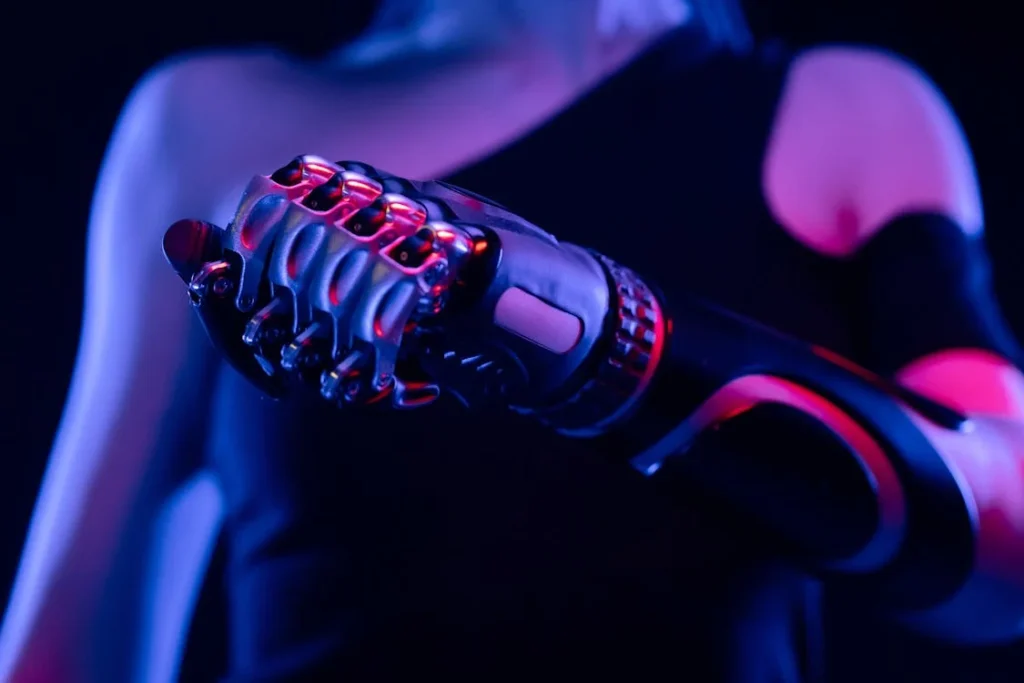Madurai is a city of strength. It has stood tall for thousands of years, carrying with it stories of power, tradition, and incredible human spirit. It is home to history, but it also embraces change. Today, that spirit of resilience is more important than ever—especially for those in Madurai who are living with the loss of a hand.
Losing a limb doesn’t just change how you move—it changes how you live. Everyday things like holding a tumbler of coffee, buttoning a shirt, or turning the ignition of your scooter suddenly become harder, sometimes impossible. And in a place as vibrant as Madurai, where life moves quickly and people are deeply connected to work, family, and community, the loss of independence hits even harder.
But here’s the truth: this doesn’t have to be your new normal.
At Robobionics, we believe you deserve more than just a device. You deserve a second chance at ease, dignity, and freedom. We’ve worked with people from all over India, including towns just like Madurai, to design prosthetic bionic hands that don’t just replace motion—they bring back confidence.
Our hands are made in India, built for Indian weather, Indian habits, and Indian lives. We don’t import a Western solution and try to make it fit. We build from scratch—for you, for your culture, and for your everyday needs.
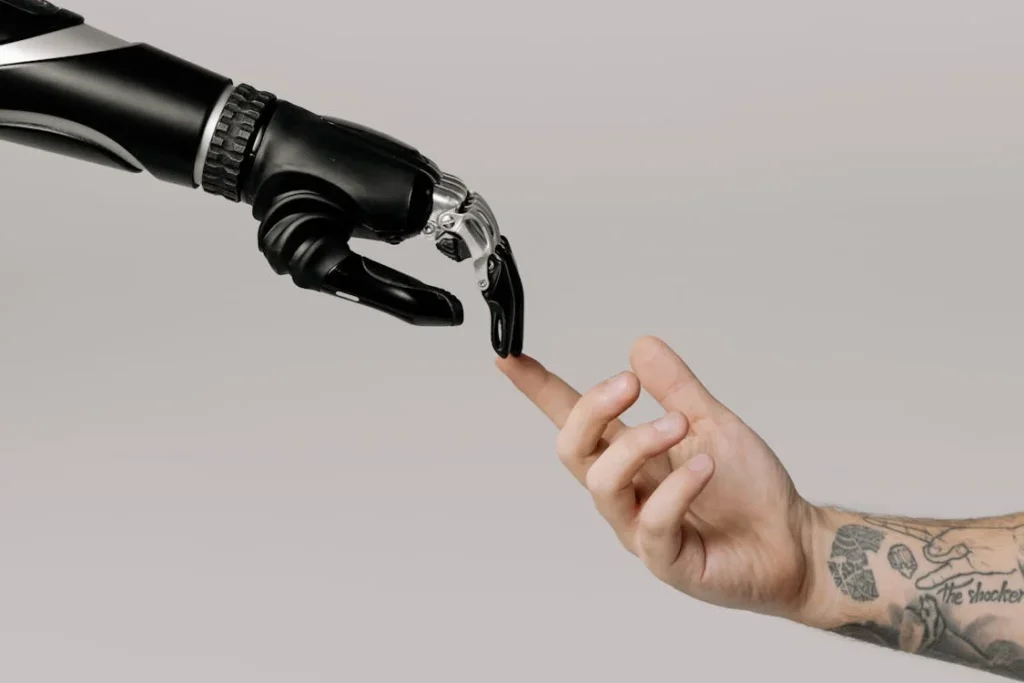
Understanding What a Bionic Hand Really Is
It’s Not Just a Machine. It’s a Part of You.
When people hear the words “bionic hand,” their first thought is often of something futuristic—metal fingers, blinking lights, maybe something from a science fiction movie. But in real life, a bionic hand isn’t meant to be flashy. It’s meant to be functional.
A real bionic hand is built to do what your natural hand once did. Pick up objects. Hold a phone. Stir a pot. Turn a doorknob. Carry your bag. It should be as close to natural as possible—not just in movement, but in how it feels, fits, and responds.
That’s where the difference lies. Many prosthetic hands on the market today are basic in function. They may open and close, but they don’t adapt to you. They don’t understand what you want to do. And more importantly, they don’t make your life easier.
At Robobionics, we’ve spent years working with users across India—villages, towns, and cities—listening to what they need from a prosthetic hand.
That’s why our bionic hands do more than just move. They learn. They adapt. They adjust to your muscle signals and your lifestyle, until they feel like they’ve always been there.
And for a city like Madurai—where people live active lives, run small businesses, teach, travel, and engage deeply with their community—this kind of natural, reliable support can be life-changing.
How Does It Work? A Simple Explanation
Let’s make this easy to understand.
Your muscles still speak, even if your hand is missing. When you think about closing your fingers or rotating your wrist, those signals still travel down your arm. They just have nowhere to go.
Our bionic hand picks up those signals using special sensors that sit comfortably on your skin. When you flex a muscle, the hand understands what you want to do and responds—opening, closing, gripping, rotating. And you’re in full control.
There are no complicated commands. No long training sessions. It’s you, doing what you’ve always done—just with a little help.
You start slow. Maybe with simple movements like gripping a bottle. But within days, you’ll find yourself doing more. Writing your name. Holding your mobile. Lifting a cooking vessel. All of this becomes natural again.
And it’s not just about function—it’s about feeling. When you can use your hand again to take part in life fully, your confidence comes back. You smile more. You walk taller. You feel like you again.
That’s the magic behind the technology. It’s not about robotics. It’s about restoring freedom.
Why Most Hands Don’t Work in India—and Ours Do
Let’s be honest. Most high-tech bionic hands are made in cold countries, designed for cooler climates, bigger body types, and slower lifestyles. But India—especially Madurai—is hot, humid, busy, and full of movement. You need a hand that works with your pace, not against it.
Imported hands often overheat, slip on sweaty skin, or react poorly to dust and heat. Their grips might not be strong enough to handle our utensils or tools. And if something breaks, getting repairs or support can take weeks or months—not to mention the cost.
Robobionics hands are designed and manufactured entirely in India. We know what it’s like to walk through the crowded streets of Madurai in the middle of May.
We understand that you may need to wear your hand from early morning till night, even through temple visits, bus rides, and long work hours. That’s why every part of our hand—inside and out—is built for comfort, durability, and real-life use.
And yes, even charging the hand is simple. You won’t need to carry around complicated adapters or wait hours for power. A quick charge in the morning keeps it going strong through the day.
Fitting You Like a Glove—Because One Size Never Works
Another common issue with many prosthetic hands is the fit. A bionic hand isn’t something you wear loosely. It’s not like a shoe you can slip off. If it doesn’t fit you properly, it can cause pain, blisters, or simply fall off during use.
At Robobionics, we take your fit seriously. Before we build anything, we scan your arm using modern tools that take exact measurements. Then we customize the socket (that’s the part where your arm connects to the hand) so that it feels secure, balanced, and comfortable.
Even after the fitting, if something feels off, we adjust it—free of charge. Because the only way a bionic hand can work well is if you forget you’re wearing it. That’s our goal.
In Madurai, where temperatures can rise and sweat is unavoidable, we also offer materials that allow your skin to breathe. You won’t have to keep removing your hand every hour just to get some relief. You wear it and go on with your life.
We’ve even had people tell us they wore their bionic hand through an entire day at a wedding—eating, dancing, taking pictures—and completely forgot they had it on. That’s the level of comfort we aim for.
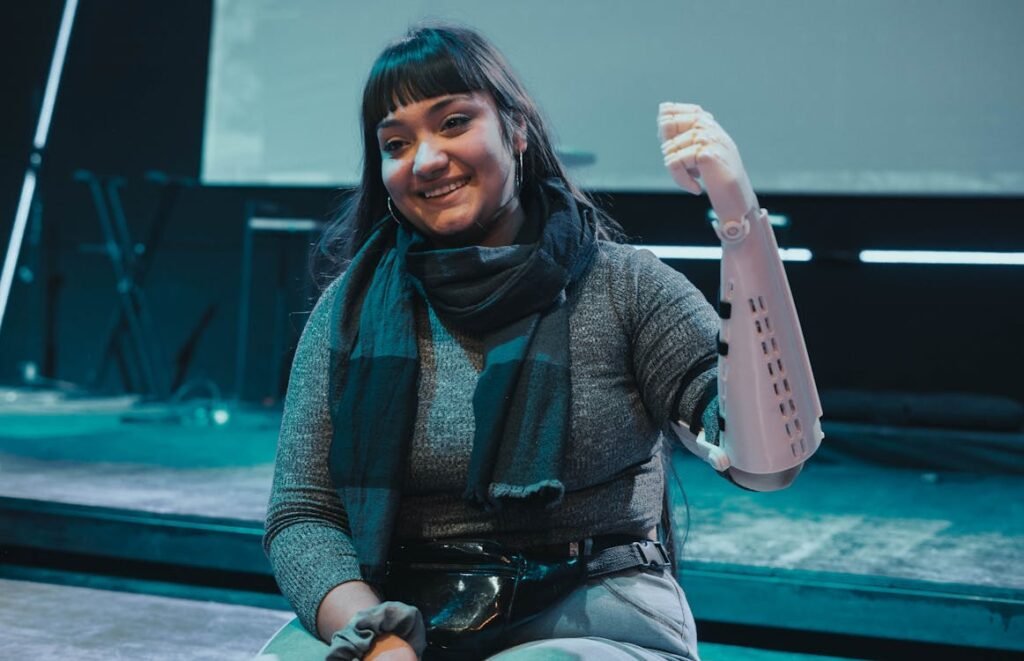
Why Robobionics Is the First Choice for Prosthetics in Madurai
Understanding Local Needs, Not Just Technical Specs
Every city has its own rhythm. Madurai’s is warm, lively, and deeply rooted in tradition. Life here starts early. People visit the temple before sunrise, open their shops by morning, teach, farm, run errands, cook large meals, and gather in the evenings. The pace may look relaxed, but it never stops.
That’s why the people here don’t just need a bionic hand that works. They need one that keeps up.
A hand that understands their day-to-day life—cutting vegetables, riding two-wheelers, washing clothes, serving food, working with tools, even handing cash at a busy counter. These are all things we’ve seen firsthand.
Most prosthetic companies build for a general “global” lifestyle. But our users in Madurai don’t live that life. They don’t sit behind desks all day. They are teachers, small business owners, tailors, college students, mothers, farmers. They don’t just use their hands. They depend on them.
At Robobionics, we built our system with that truth in mind. We didn’t ask what the hand should do—we asked what people do every day in Madurai. And we designed accordingly.
It’s why our grip strength is tailored for real-world objects, not plastic test items. It’s why we offer options for flexible wrists—so users can stir a curry, squeeze a mop, or adjust a scooter mirror. It’s why we’ve made the hand water-resistant, heat-tested, and strong enough to carry grocery bags or lift your child without worry.
We’re not offering a “luxury gadget.” We’re offering a life tool—one that fits right into the flow of your daily routine.
Support That’s Always Close By
Let’s face it—getting a prosthetic hand is a big step. And even after you’ve got it, things can come up. Maybe the fit feels a bit tight. Maybe you want to adjust how the fingers respond. Or maybe you just have a question about charging.
With most brands, especially international ones, support feels like a wall. You send an email. You wait. You try to explain your issue over the phone. You get passed around. And sometimes, you give up.
With Robobionics, support is not a service. It’s a relationship.
When you become a user, we stay connected with you. Not just for a week. For as long as you’re using the hand. We call, message, follow up, and even visit you if needed. We explain things in your language. We adjust anything that doesn’t feel right. And we never leave you guessing.
We also have support centers and trusted partners within reach of Madurai. So if you ever want to walk in and talk to someone in person, you can. You’re never alone in this.
Our users tell us that just knowing they can reach us easily gives them the courage to try new things. To ride the bus again. To go back to school. To travel. Because they know we’re here if they ever need us.
That kind of trust is rare. And we take it seriously.
Affordability Without Compromise
The biggest barrier to prosthetics in India is not fear. It’s cost.
Many people assume that a bionic hand is out of their reach. They imagine a price that’s too high, with parts they don’t understand and features they may never use. And that’s often true—with imported hands, prices can go into lakhs, with very little support once you’ve made the payment.
But at Robobionics, we made a different choice.
We believe every Indian deserves access to world-class prosthetics—not just the wealthy. That’s why we’ve built everything here in India, using materials and systems that are smart, durable, and cost-efficient.
We don’t inflate our prices to appear premium. We focus on real value. We even offer EMI options and financial assistance programs for those who need support. Because no one should have to choose between freedom and finances.
And we’re fully transparent. When you come to us, you’ll know exactly what you’re paying for. There are no surprise charges. No fine print. Just a clear path toward getting your hand and starting your journey.
In Madurai, where family matters, we know that these decisions are often made together—with parents, siblings, spouses. And we’re here to guide you all through it, patiently and honestly.
This isn’t a transaction for us. It’s a transformation for you.
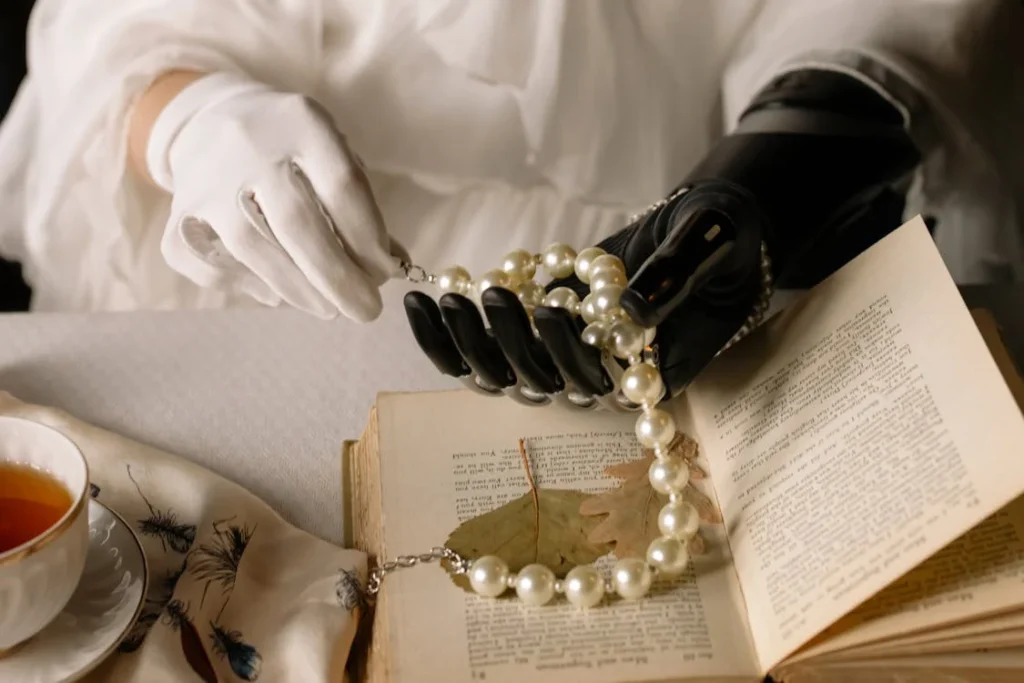
Fitting Into Madurai’s Culture, Not Just Its Climate
Technology That Respects Your Way of Life
In a city like Madurai, traditions are not just remembered—they are lived. From temple visits to festivals, from daily rituals to close-knit family gatherings, life here is rich with rhythm, meaning, and connection.
That’s why a bionic hand must be more than a tool—it must be something that blends seamlessly into that cultural flow.
At Robobionics, we don’t just build hands that function. We build hands that fit your life.
That means being able to join your palms in prayer during a pooja, carry a plate during a wedding, or apply turmeric during family rituals without fear of dropping it. Our hands are tested not just in labs, but in real-life moments like these.
Many prosthetic systems struggle with delicate movements or social gestures. Try folding your hands in front of a deity or eating comfortably with a poorly designed prosthetic—it just doesn’t feel right.
But with our hand, the movements are smooth, the gestures are natural, and the experience is respectful of how you live and interact.
And that’s the kind of difference that only a company deeply rooted in Indian culture can deliver.
From Humble Homes to Busy Streets—It Just Works
Whether you live in a quiet residential area near KK Nagar or run a roadside tea stall near the Periyar bus stand, life in Madurai is full of movement.
You might be helping your children get ready for school, preparing rice before the sun gets too hot, or weaving jasmine garlands for a customer before temple hours begin.
And for all of this, you need a hand that doesn’t ask for your attention every few hours. You need something reliable. Something that works even if you’re standing near a hot stove, working in the dust, or walking through crowded lanes.
That’s exactly what we’ve built.
Our bionic hands are made with high-endurance materials that hold up under pressure—heat, moisture, frequent movement, and long hours. And while the inside is packed with modern tech, the outside is practical and comfortable.
We’ve worked with hundreds of users in small towns and cities to understand what real-life wear means in India. That’s why we’ve made our designs water-resistant, sweat-friendly, and easy to clean.
The grip strength is calibrated to hold even slippery steel utensils, and the socket is shaped to avoid irritation during long hours of wear—even if you’re out in the sun all day.
And if you’re someone who travels a lot—maybe by bike or by bus—our hand stays secure and responsive without needing constant adjustments. That’s not a small feature. It’s the kind of thing that quietly changes your day from tiring to effortless.
From Shame to Pride—Owning Your Story Again
One of the most powerful things we see with users in Madurai is the shift in identity. In many parts of India, including Tamil Nadu, losing a hand comes with social discomfort. People don’t always say anything—but their stares, their hesitation, their assumptions can be heavy.
Many people start hiding their arms. They stop attending events. They cover up their stump with long sleeves, avoid selfies, and let their world become smaller.
But everything begins to shift the day they try on our bionic hand.
For some, it’s the first time in months—or even years—that they feel like themselves again. They walk through the market with ease. They attend weddings with confidence. They shake hands again without worrying about judgment.
And soon, they don’t just accept their story—they begin to own it.
They show friends how their hand works. They explain how they move their fingers. They inspire people who once pitied them. Some even become local ambassadors, helping others in the area discover what’s possible.
We’ve seen users in Madurai wear their bionic hand like a badge of strength. Not something to hide. Something to be proud of.
This isn’t just about prosthetics. It’s about personal power.
Madurai’s Role in India’s Prosthetic Future
Robobionics is not just about making hands. It’s about reshaping what prosthetics mean in India—and Madurai is an important part of that journey.
We see Madurai not only as a city of rich heritage, but as a hub for forward-thinking communities who embrace practical innovation. The way people in Madurai adapt to change while holding onto values is a beautiful balance—and it’s exactly what inspires our approach to design.
We often pilot new upgrades in cities like Madurai. That includes more intuitive grip switches, more flexible wrist angles, and even finer finger motions for those working with tools or teaching blackboard lessons.
The feedback we get from users here has helped us improve our products across India.
So when you wear a Robobionics hand in Madurai, you’re not just using new technology. You’re shaping its future—for others, for children, for the country.
You’re not just a user. You’re a partner in progress.
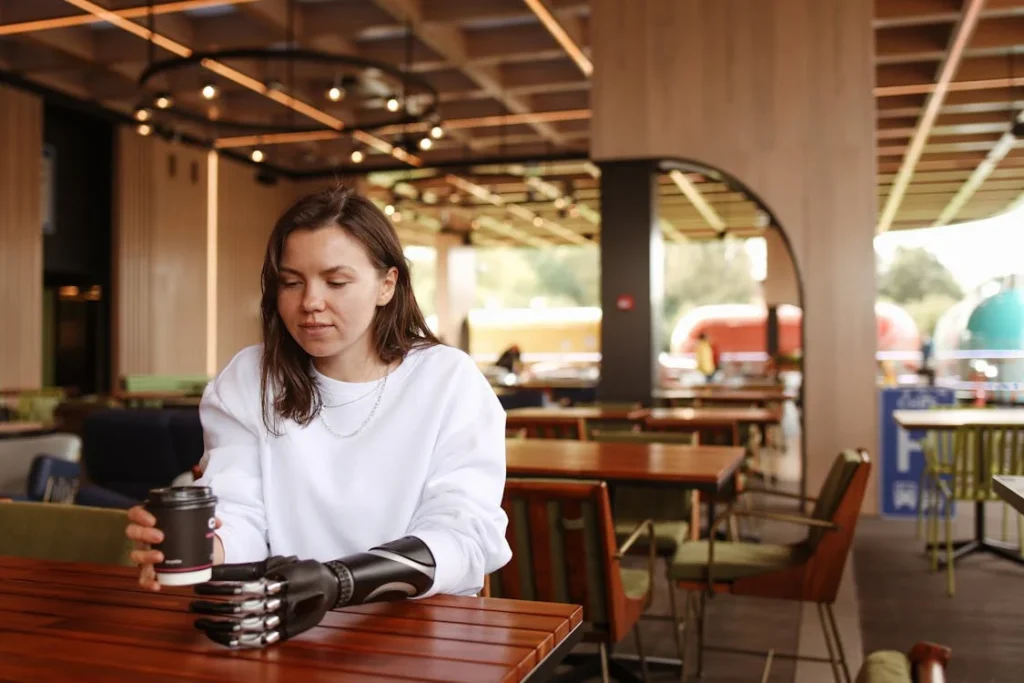
Real Stories, Real People: Madurai’s Robobionics Heroes
More Than Testimonials—These Are Transformations
Behind every bionic hand is a journey. And some of the most powerful journeys we’ve seen have come from people right here in Madurai. These are not actors. They’re not models. They’re everyday people who refused to let their circumstances define their future.
Take Murugan, for example. He’s a carpenter who lives near Anna Nagar. A few years ago, an accident with a power saw left him without his dominant hand.
For a while, he thought his days with wood were over. He couldn’t hammer, grip a chisel, or hold a measuring tape. He stopped taking jobs. He stayed home. His confidence, along with his income, began to fade.
But then he visited us.
At first, he was hesitant. He didn’t believe a “robotic hand” could do anything in his line of work. We didn’t pressure him. We just let him try.
One week later, he was holding tools. Two weeks later, he was sanding wood again. Within a month, he took on a new project—a full furniture order.
Now, not only is he back to work, but he also talks to other workers who’ve faced similar injuries. His story isn’t just about regaining movement. It’s about reclaiming purpose.
From College Dropout to Role Model
Then there’s Aishwarya, a 20-year-old from Koodal Nagar. Born without a right hand, she grew up covering her arm, avoiding sports, and staying away from group activities.
She studied hard, but the stares at college wore her down. During her second year, she dropped out—not because she lacked ability, but because she was tired of feeling different.
Her parents brought her to us, nervous but hopeful. We listened to her. We didn’t pitch a product. We asked her what she wanted out of life. She said: “I just want to live like everyone else.”
That was all we needed to hear.
Today, she’s back in college—confident, engaged, and popular. She takes part in cultural events, shares her story online, and is even helping us translate prosthetic training materials into Tamil so others feel more included. She doesn’t just use her hand. She’s building a bridge for others to find theirs.
Stories like Aishwarya’s show us what’s possible when technology meets empathy.
A Family’s Strength, Rediscovered
One of our most moving stories came from a village just outside Madurai, where a man named Selvakumar lived with his wife and two children.
After a road accident, he lost his hand and couldn’t continue his job as a delivery rider. The family struggled. He withdrew. His wife took on multiple small jobs. Their son dropped out of tuition classes to save money.
When he got fitted with a Robobionics hand, he cried—not because of the technology, but because he could finally hold his daughter’s hand again on a walk to the temple. That’s what mattered most to him.
With training and support, he found work again—this time helping with office logistics. The family’s routine slowly returned. Their smiles did too.
For us, this is what success looks like. Not big headlines. Not awards. Just life restored.
Madurai’s Community Spirit Brings It All Together
One thing we’ve learned through all our work in Madurai is that no one moves forward alone.
Whether it’s a father guiding his child through their first day with a prosthetic, or a teacher supporting a student’s journey, or even neighbors offering rides to our consultation centers—this city shows up for each other.
That’s why Robobionics has begun building community chapters—small user circles where people using bionic hands can meet, talk, share, and grow together.
In Madurai, these gatherings feel less like “support groups” and more like reunions. There’s laughter, encouragement, learning, and above all—a sense of belonging.
We’ve seen strangers become friends. Parents become mentors. Students become teachers. And we’re just getting started.
When people see someone like them using a bionic hand with confidence—doing normal things like cooking, shopping, or writing—they stop seeing the hand as strange. They start seeing it as strong.
That shift in perspective ripples outward—touching families, schools, workplaces, and the wider public. And that’s how cities like Madurai don’t just use prosthetics—they help change the conversation around them.
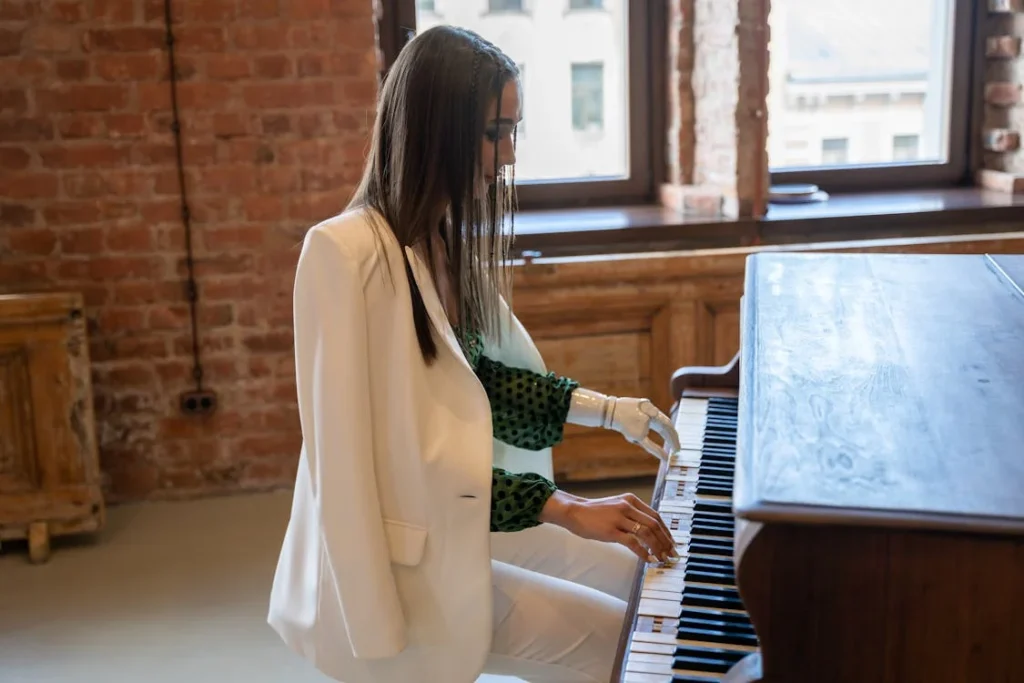
Bridging the Gap: Making Bionic Hands Accessible in Rural Madurai
The Problem Isn’t Just Technology—It’s Reach
India’s biggest healthcare challenge isn’t always a lack of innovation—it’s accessibility.
There are thousands of people in rural areas who never get to benefit from world-class solutions simply because they don’t know such options exist—or worse, they believe those options are “not for people like them.”
This is especially true for advanced prosthetics.
In and around Madurai, there are villages and small towns where people have been living without a hand for years, unaware that bionic technology has reached a point where it can restore almost-natural movement.
They assume that prosthetic care begins and ends with basic plastic limbs that don’t move. For many, even reaching a specialist clinic involves hours of travel and missed work.
At Robobionics, we realized this very early—and we decided to change the way care is delivered.
Instead of waiting for people to come to us, we started going to them.
Taking Technology Beyond City Limits
One of the biggest myths about prosthetics is that you need to be in a major metro city to get advanced care. That may be true with some companies—but not with us.
In fact, many of our proudest success stories didn’t begin in the center of Madurai. They began in places like Thirumangalam, Usilampatti, and Melur. Small towns. Modest homes. Limited resources. But with the same drive, same dreams, and same right to regain freedom.
We began holding mobile clinics—where our team would travel to these areas, conduct basic limb assessments, explain the options in simple Tamil, and start fittings if the person was ready. And we weren’t doing this with a salesperson’s script. We were doing this with human empathy.
We know that for many of these users, wearing a bionic hand isn’t just a medical decision. It’s an emotional one. It means being seen again. It means confronting past trauma. It means trusting someone to help you change your life.
So we listened. We answered every question, no matter how small. We demonstrated the hand not with technical terms, but with everyday actions—like lifting a tumbler, handling rice, or opening a tiffin box. When people saw how naturally our hands moved, their eyes lit up. Not just with interest—but with hope.
Building Trust in Local Languages and Local Values
We understood quickly that no matter how great our technology was, it wouldn’t matter if people couldn’t understand it—or trust it.
That’s why we’ve trained local volunteers, healthcare workers, and physiotherapists around Madurai to explain our hands in Tamil, with real examples. When someone from the same region, speaking the same dialect, shares how they regained use of their hand—it hits differently.
It’s no longer just a sales pitch. It’s a shared experience.
In rural Tamil Nadu, trust is everything. Decisions are made slowly, carefully, and often with the whole family involved. So we give families time. We answer every member’s questions. We explain maintenance. We demonstrate battery safety. We let them try it, hold it, test it—without pressure.
This approach has not only helped us fit more hands in rural Madurai, but also created a network of trust that keeps growing.
Today, when we enter a village where one person has received a Robobionics hand, they become our ambassador. They tell their neighbors. They show them how it works. And sometimes, they bring others to the next clinic—so the cycle continues.
Solving the Logistics Puzzle with Innovation
You might wonder how we manage to offer custom-fitted, high-tech hands in remote areas without the overheads of big city hospitals.
Simple: we built the entire process to be portable and scalable.
We use lightweight 3D scanning tools that allow us to take exact measurements on the spot. The data is securely transferred to our design unit, where we custom-build the hand and socket. Once it’s ready, we return to the location for final fitting and training.
No hospital stays. No expensive travel. No complicated waiting lists.
And if something needs adjusting? We’ve trained regional tech partners to do basic servicing, with the option for a remote session with our central team. So people aren’t stuck with a hand that doesn’t work—they get the same follow-up care as someone in a Tier 1 city.
For many in these communities, this is their first experience with tech that doesn’t just reach them—it respects them.
From Isolation to Inclusion
There’s a silent cost to limb loss that isn’t always talked about—social exclusion. In many rural areas, especially among older generations, a missing limb can mean fewer job opportunities, lost marriage proposals, even whispered gossip in the neighborhood.
But when someone shows up with a sleek, responsive bionic hand that can stir tea, hold a pen, and answer phone calls—they don’t just restore function. They change the narrative.
Suddenly, they’re not someone to pity. They’re someone who adapted. Someone who overcame. Someone who brings something new to the table.
This change doesn’t just affect the individual. It ripples through the entire community. Teachers start treating differently-abled children with more respect. Employers become open to hiring amputees. Families feel pride instead of shame.
This is the kind of impact that no ad campaign can buy. It’s the real work, and it’s what Robobionics does best.
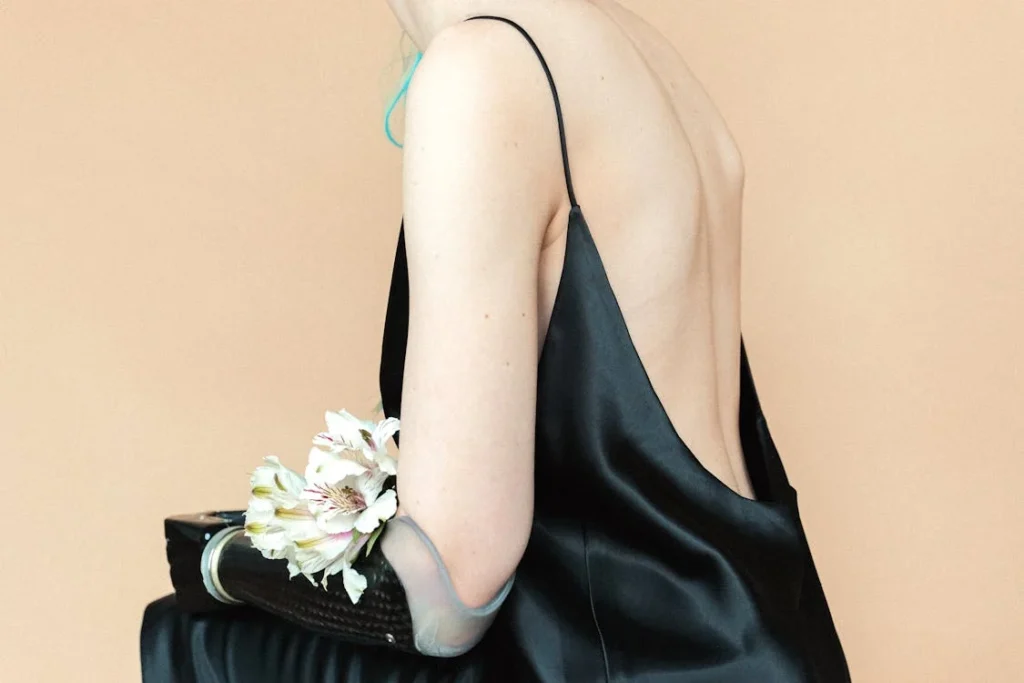
Inspiring the Next Generation: Robobionics and the Youth of Madurai
Not Just a Solution—A Spark for Innovation
When most people think of a prosthetic hand, they think of it as the end of a journey. Something that helps someone get back to normal life after a loss.
But at Robobionics, we’ve started seeing it as something more—a beginning. A spark. An idea that can inspire people to dream bigger, not just about healing, but about building.
Madurai, with its rising number of colleges, tech institutions, and young minds ready to shape the future, is not just a city of tradition. It’s a city of potential.
And we’re tapping into that potential—not just by providing bionic hands to those in need, but by bringing students into the world of prosthetic technology.
Because when a student in Madurai sees someone use a hand that responds to muscle signals, grips a pen, or lifts a glass with perfect control, they don’t just ask “how does it work?”
They ask, “Can I build something like this?”
And the answer is yes. Always yes.
Workshops That Open Doors
We’ve held workshops and guest lectures in several local institutions around Madurai—engineering colleges, vocational schools, and even higher secondary classrooms. Our goal isn’t to promote our brand. It’s to open minds.
We walk in with one goal: to show students that high-impact, life-changing technology isn’t something reserved for Silicon Valley or foreign labs. It can be built right here. With local materials, local talent, and a deep understanding of Indian needs.
We bring our bionic hands into classrooms. We dismantle one piece-by-piece. We explain how the sensors work, how control systems interpret muscle signals, how motors are designed for grip pressure, and how the shell is printed for ergonomic fit.
And as we do this, students’ eyes widen—not just with curiosity, but with purpose.
We’ve had young boys and girls who were initially interested in generic software jobs come to us after a session and say, “I want to build something that helps people like this.” That’s when we know we’ve done something important.
These are not just future engineers. They’re future problem solvers.
Internships That Create Local Heroes
At Robobionics, we don’t just teach from the stage. We invite students in.
We’ve developed a program where final-year engineering and biomedical students from Madurai and nearby districts can intern with us. Some work on the design of sockets.
Others help us build mobile apps for grip switching. Some even join our outreach teams, learning how to explain prosthetics in simple Tamil to patients in remote areas.
This is not just education. It’s experience—the kind that builds real confidence and career direction.
And when these students go back to their colleges or homes and tell their families what they’re working on, something remarkable happens. Their families stop seeing them as just students. They see them as creators—people who are already making a difference.
That shift in how youth view themselves—and how their community sees them—is the kind of ripple effect that spreads far beyond the classroom.
Making Disability Visible—For the Right Reasons
Most young people grow up in a world where disabilities are hidden. Not discussed. Not normalized. It creates a distance, even fear.
But when students in Madurai meet a Robobionics user in person—someone who shows up at their college with a bionic hand, answers questions, demonstrates movements, and even jokes about how they learned to use it—they realize something powerful: there’s no shame in disability. Only strength.
We’ve seen college campuses where the conversation around inclusion shifts overnight after one such event. Suddenly, accessibility in architecture becomes a student project.
AI-controlled limbs become a capstone topic. Support for disabled peers becomes a natural part of campus life.
And all of this begins with seeing. Seeing someone empowered. Seeing what’s possible. Seeing yourself as part of the solution.
Madurai’s Role in the National Innovation Story
While cities like Bengaluru and Hyderabad are seen as India’s tech centers, we believe Madurai is one of its deepest roots for purpose-driven innovation.
Because here, ideas don’t float in labs. They take root in homes, in classrooms, in people’s real problems. Youth here are deeply connected to their families, their culture, and their values. When they build something, they build it to help.
That’s why some of our best breakthroughs haven’t come from veteran designers in big cities—but from young thinkers in Madurai who asked a simple question: “Can this be done better for our people?”
That spirit is what makes Madurai essential to the future of Robobionics—and to the future of prosthetics in India.
We’re not just creating hands. We’re creating hope. And we’re doing it with the help of young minds who believe that technology must be humble, human, and deeply helpful.
Conclusion
In a city as timeless and vibrant as Madurai, life never stops moving. And neither should you. Whether you’re a teacher guiding students, a parent managing a household, a college student with big dreams, or a worker supporting a family—your hands are your strength. When one is lost, it may feel like everything changes. But that change doesn’t have to mean the end.
With Robobionics, it can be the beginning of something stronger. We’ve built more than just bionic hands. We’ve built trust, comfort, access, and dignity—piece by piece, for real people, in real homes, across Madurai. From the quiet lanes of nearby villages to the busy streets near Meenakshi Temple, our work is changing how people see prosthetics—not as charity or compromise, but as power.
We understand you. We speak your language. We walk beside you from first fit to full freedom. And we’ll keep walking with you, no matter how long the road. So if you or someone you love is ready to live fully again—reach out. Because at Robobionics, the next chapter of your life begins with a simple truth:
You’re not broken. You’re just getting started.



